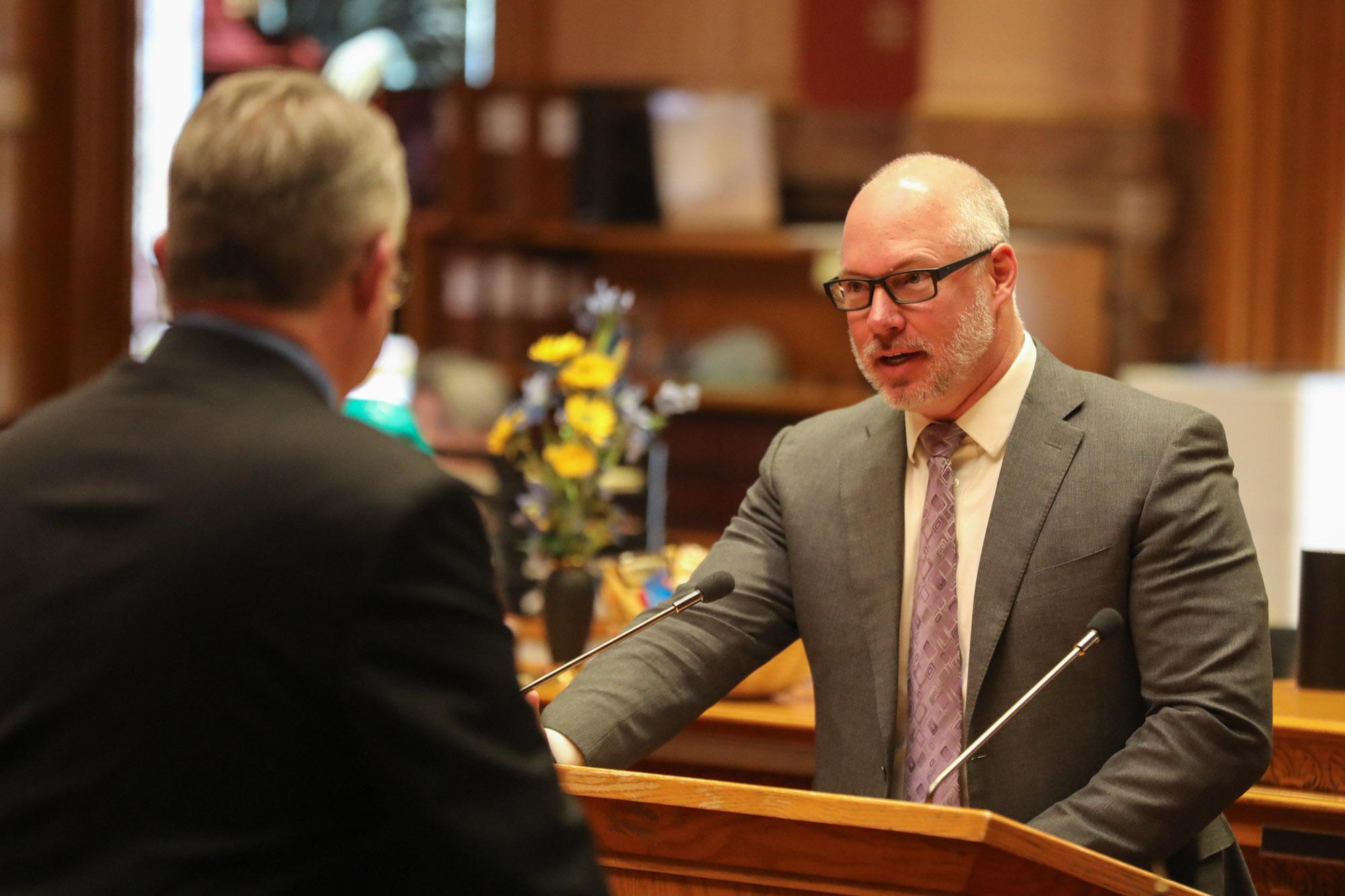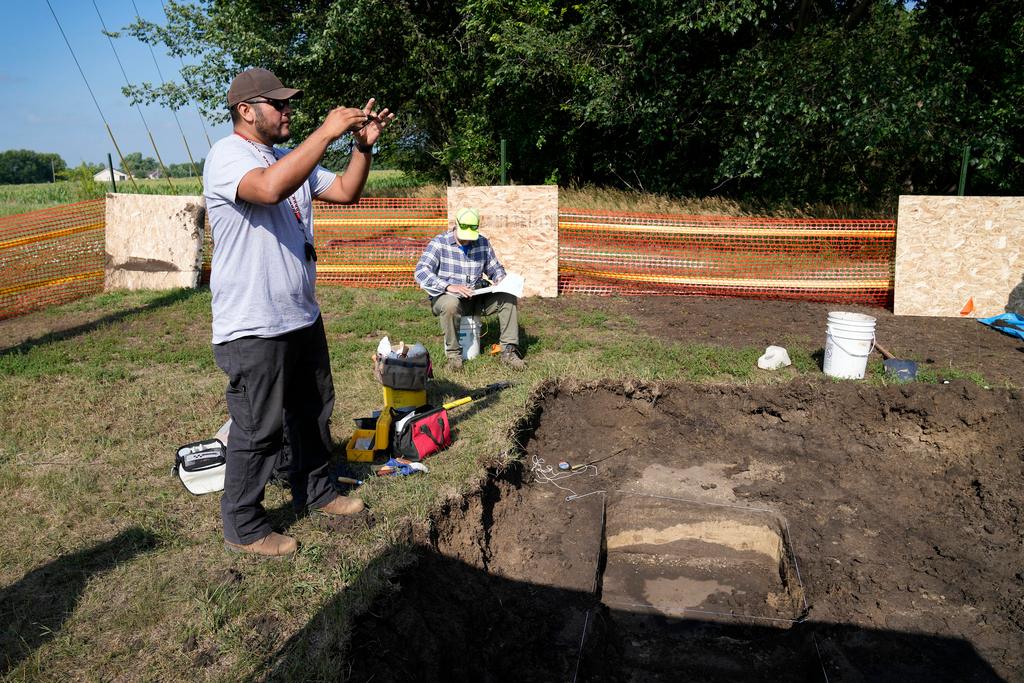
When Sen. Kevin Priola left the Republican Party to join the Democrats, his former allies were infuriated. His exit weakened the party at a crucial moment, making it more difficult for the GOP to retake the majority in the state Senate this November.
In response, Republicans have moved quickly to try to oust Priola from the legislature, and recapture his seat. They’re now trying to collect enough signatures to hold a recall election, which would allow voters to replace Priola with, they hope, a Republican.
There are still months of legal maneuvering and campaigning before that could happen — but Democrats also have an ace card that could keep the seat in their hands. Even if Republicans spend hundreds of thousands of dollars collecting signatures, Priola could simply resign from his seat voluntarily.
If he quits, a Democratic vacancy committee would be allowed to appoint his successor.
“If someone resigns before signatures are certified, then the recall is canceled, or within five days of the signatures being certified,” said Democratic Senate President Steve Fenberg.
Priola has not said whether he would step down before a recall vote, and he did not return CPR’s request for comment, but many political observers think a resignation is possible — at least if the recall effort seems to be gaining steam.
“Colin Larson is laying down the prediction right now: Kevin Priola resigns in November,” said Republican State Rep. Colin Larson.
Republicans say they'll attempt to recall whoever Democrats put up
If Priola did indeed step down, his appointed replacement would serve the last two years of his term and be able to stand for election in 2024. But Republicans could also move almost immediately to try to recall that new lawmaker.
“If Priola resigns then we’ll look right away at recalling the next person, because we think Senate District 13 should be the ones to decide who represents them,” said Michael Fields, with Advance Colorado Institute, the conservative nonprofit behind Priola’s recall.
Larson said this whole situation could become quite the political drama, depending on how things play out. If the elections produce only a one-seat difference in the Senate, which is plausible, then a recall effort against Priola (or his hypothetical successor) could decide which party holds the majority in the state Senate.
If that’s the case, Larson said, Republicans could attract plenty of money to mount as many recalls as needed.
For now, state officials have given recall organizers the go-ahead to try to collect the roughly 18,000 valid signatures to put the recall question to voters. Organizers have 60 days to collect those signatures and, if they do, the state has another 28 days to review them. But an actual vote could still be more than two months later, sometime early next year.
Democrats have filed a lawsuit in Denver District Court to try to force the recall to be conducted in Priola’s current district, or require recall organizers wait until January when he’s sworn in to represent a new district. Because of redistricting, Priola is automatically shifting to a new more conservative seat, instead of the Democratic-leaning district he currently represents, Senate District 24.
Fenberg, the Democratic leader in the Senate, said that recalling Priola over his political switch runs counter to the purpose of the recall process.
“I think it's a weaponization of the recall process, which I think most people would agree was put in place largely for accountability purposes, if somebody has committed malfeasance or fraud or something like that,” said Fenberg. But “obviously it can be used for political differences.”
Recall efforts against legislators are rare. In 2013 two Democrats, Senate President John Morse of Colorado Springs and Democratic Sen. Angela Giron of Pueblo, were ousted over their support for two gun measures — a ban on high capacity magazines of more than 15 rounds, and universal background checks — that passed in the wake of the Aurora theater shooting.
A third Democratic Senator targeted that year, Evie Hudak, resigned rather than face a recall vote.
The recalls, though historic, did not change the balance of power in the state Senate.
More recently, in 2019, Republicans launched recall attempts against several state lawmakers after Democrats passed a number of controversial bills, including an overhaul of oil and gas regulations and a ‘red flag’ gun law,
None of those efforts made it to the election stage, although one target, Democratic state Rep. Rochelle Galindo of Greeley, did resign her seat for an unrelated reason.
In Priola’s case, the party switch was a shock to conservatives and Democrats even though he had long been Colorado’s most moderate Republican Senator, known for breaking with the rest of his caucus to sponsor bills with leading Democrats. In August Priola announced he had changed his affiliation to Democratic, after being disillusioned by the GOP’s failure to distance itself from former president Donald Trump after the Jan. 6 insurrection and the party’s opposition to tackling climate change.









